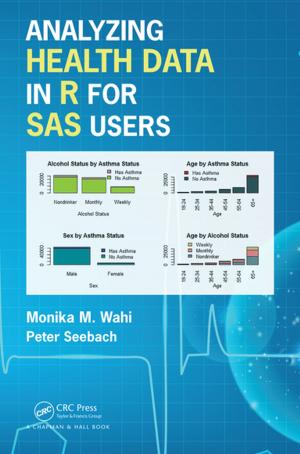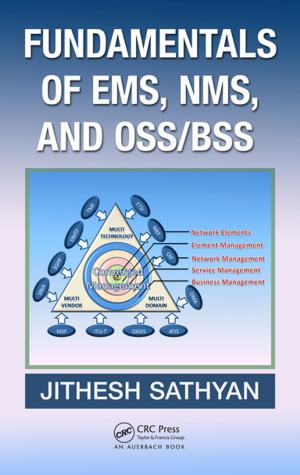Valuing Data
An Open Framework
Nonfiction, Computers, Database Management, Advanced Computing, Information Technology, Networking & Communications, Computer Security| Author: | Dewey E. Ray | ISBN: | 9781351388771 |
| Publisher: | CRC Press | Publication: | May 25, 2018 |
| Imprint: | Taylor & Francis | Language: | English |
| Author: | Dewey E. Ray |
| ISBN: | 9781351388771 |
| Publisher: | CRC Press |
| Publication: | May 25, 2018 |
| Imprint: | Taylor & Francis |
| Language: | English |
The past decade has seen a dramatic increase in the amount and variety of information that is generated and stored electronically by business enterprises. Storing this increased volume of information has not been a problem to date, but as these information stores grow larger and larger, multiple challenges arise for senior management: namely, questions such as "How much is our data worth?" "Are we storing our data in the most cost-effective way?" "Are we managing our data effectively and efficiently?" "Do we know which data is most important?" "Are we extracting business insight from the right data?" "Are our data adding to the value of our business?" "Are our data a liability?" "What is the potential for monetizing our data?" and "Do we have an appropriate risk management plan in place to protect our data?"
To answer these value-based questions, data must be treated with the same rigor and discipline as other tangible and intangible assets. In other words, corporate data should be treated as a potential asset and should have its own asset valuation methodology that is accepted by the business community, the accounting and valuation community, and other important stakeholder groups. Valuing Data: An Open Framework is a first step in that direction. Its purpose is to:
- Provide the reader with some background on the nature of data
- Present the common categories of business data
- Explain the importance of data management
- Report the current thinking on data valuation
- Offer some business reasons to value data
- Present an "open framework"—along with some proposed methods—for valuing data
The book does not aim to prescribe exactly how data should be valued monetarily, but rather it is a "starting point" for a discussion of data valuation with the objective of developing a stakeholder consensus, which, in turn, will become accepted standards and practices.
The past decade has seen a dramatic increase in the amount and variety of information that is generated and stored electronically by business enterprises. Storing this increased volume of information has not been a problem to date, but as these information stores grow larger and larger, multiple challenges arise for senior management: namely, questions such as "How much is our data worth?" "Are we storing our data in the most cost-effective way?" "Are we managing our data effectively and efficiently?" "Do we know which data is most important?" "Are we extracting business insight from the right data?" "Are our data adding to the value of our business?" "Are our data a liability?" "What is the potential for monetizing our data?" and "Do we have an appropriate risk management plan in place to protect our data?"
To answer these value-based questions, data must be treated with the same rigor and discipline as other tangible and intangible assets. In other words, corporate data should be treated as a potential asset and should have its own asset valuation methodology that is accepted by the business community, the accounting and valuation community, and other important stakeholder groups. Valuing Data: An Open Framework is a first step in that direction. Its purpose is to:
- Provide the reader with some background on the nature of data
- Present the common categories of business data
- Explain the importance of data management
- Report the current thinking on data valuation
- Offer some business reasons to value data
- Present an "open framework"—along with some proposed methods—for valuing data
The book does not aim to prescribe exactly how data should be valued monetarily, but rather it is a "starting point" for a discussion of data valuation with the objective of developing a stakeholder consensus, which, in turn, will become accepted standards and practices.















